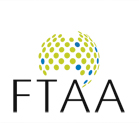FTAA CALLED TO THE SENATE HEARING ON THE FOOD PROCESSING INDUSTRYCOMMITTEE SECRETARY Dear Sir/Madam, We hereby make a submission to the Select Committee from the Food Technology Association of Australia Inc (FTAA) for consideration. The submission is made by Peter Bush, the Executive Officer of FTAA, as authorised by the FTAA Committee of Management. FTAA is an Association for Companies in the food industry and has as one of its primary objectives ÔÇô ÔÇ£To promote and advance the scientific and technical aspects of the food processing, manufacturing and distributing industries of Australia and other industries closely related theretoÔÇØ. SUMMARY of SECTIONS TO BE COVERED This submission will limit itself to comments on the following sections of the Terms of reference ; – 1 (a) global competitiveness 1 (b) (iii)& (iv) food labelling 1 (g) skilled labour and skills training COMMENTARY 1 (a) global competitiveness Australia produces high quality food across the range of agricultural products, commodity products and value added products. The 21st Century has seen an increase in the global production of products which compete favourably with our products ( quality and a lower price) and these have found their way on to our supermarket shelves. In addition the current policy of house brand development by the two major supermarket chains ( said to have over 80% of the retail food market)has taken advantage of this situation and we find housebrand frozen fish & vegetables from a whole range of Countries (eg Thailand, China, Poland and Holland). This loss of global competitiveness has thus reduced supply from local food processors to our market, and has affected the export market in the same way. The only positive factor is that consumers benefit by purchasing lower priced imports ( as with electrical & white goods in 2010 and continuing). The recent history of the strong Australian dollar, although fluctuating, has further reduced our competitiveness ÔÇô both for import substitution and for exports markets. The, as yet unkown, impact of a carbon tax on the selling prices of manufactured food products will further┬á reduce our global competitiveness in the same way. The concept of food miles now seems to have been bypassed. 1 (b) (iii)& (iv) food labelling Food labelling in Australia as directed by the Food Standards Code is comprehensive and in general the standard of labelling of food products is very good. However,┬á food labels have been used as the ÔÇ£whipping boyÔÇØ for the obesity of Australians . Nutritional labelling is mandatory and gives both nutritional information per 100g and per serving. There are active lobby groups who now believe that front of pack ┬á% RDA per serving or the traffic light system would enable better choices to be made. Labelling can only hope to inform consumers of facts and understanding these facts and the effect of energy (kJ)┬á intake from food needs to form part of a co-ordinated education programme from a young age. Such an education programme is a major undertaking as many parents themselves do not understand human nutrition and it is therefore impossible for them, as the food decision makers for children in their formative years, to decide on a nutritionally balanced diet. Fast Food is now a way of life and providing it forms part of a varied normal balanced diet if nutritionally sound. Cross-jurisdictional Regulations are a major concern for food labelling in particular. As mentioned, the FSANZ labelling Regulations are comprehensive ÔÇô but FSANZ do not enforce these Regulations, nor will they provide a reasonable cost interpretation of these Regulations. The Food Standards Code enforcement then becomes the authority of the State and Territory Governments. In Victoria this power is then given to local Councils and their Environmental Health Officers, many of whom are not thoroughly trained in the Regulations. Consequently monitoring of food labels is poor due to this cross or chain fragmented jurisdictional scenario. 1 (g) skilled labour and skills training FTAA comments on skilled labour relate specifically to the Tertiary discipline know as Food Science and Technology (both at University and TAFE level). FTAA recently commissioned Allen Consulting Group to undertake┬á a skills survey ÔÇ£ The Demand for Food Science and Technology (FST) GraduatesÔÇØ and we have attached┬á a copy of the FTAA Skills Demand Survey Analysis with this submission. It has also been submitted to the National Food Plan. The survey and previous work┬á has confirmed the following : 1. That with the reduction in secondary students taking sciences, this has negatively impacted on the number of students wanting to study FST. Food Science in some states is offered at Secondary level but not science based and similar to the traditional Domestic Science or Cooking ( not requiring Chemistry). 2. To attract students, many FST departments in Australia (11 Universities) have been forced to change courses to 3 year ( rather than 4 years) and to change the Course structure to offer Food Science and Nutrition. 3. This has resulted in a skill┬á ÔÇ£mismatchÔÇØ of what industry requires and what new graduates possess . FTAA has formed a Working group (FSTWG) with industry representation and reviewing options at (a) The secondary level, (b) The Tertiary level and once these have been reviewed (c) the Industry level . There is no doubt that funding will be needed to prop up the programmes at secondary, tertiary and industry level and ┬áwhich will really take the food industry 5 to 8 years to reap any benefit. Failure to address the current skill shortage could lead to major Food Security concerns. FTAA wishes to support The select Committee and is willing to provide more information on the above sections on request. Peter Bush Executive Officer FTAA |
The FTAA is |
Copyright ┬® 2016 Food Technology Association of Australia
